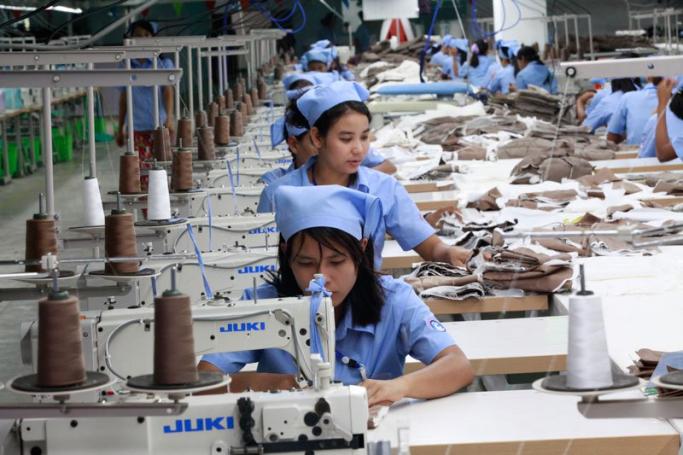The Asian Development Bank predicted economic growth in Myanmar will surge by over eight percent for the next two years as it urged the nation to press on with reforms before landmark elections, in a press release on March 24.
Myanmar, which has implemented broad economic and political changes since a half-century of military rule ended in 2011, is expected to see output grow from 7.7 percent in the 12 months to March to 8.3 percent in the 2015 fiscal year, the ADB said.
It estimated that gross domestic product growth in the fiscal year 2016 would "remain close to this pace".
The country is gearing up for crucial elections, expected in November, that could sweep away the current quasi-civilian government in favour of Daw Aung San Suu Kyi’s opposition.
"We hope that the reform momentum does not slow down too much in the lead-up to those elections," said the ADB's Myanmar specialist Mr Peter Brimble at a press conference in Yangon.
The projections have been based on the assumption that the polls will be peaceful.
"If something happens that would lead to some instability or some uncertainty in the market, then of course there would be some impact on economic growth," Mr Brimble said.
The ADB also warned that Myanmar was likely to see a major increase in the fiscal deficit - from 4.3 percent of GDP in the year to March to an estimated 6.3 percent in 2015 - since the government is expected to ramp up spending before the vote.
Myanmar has implemented an array of changes since the end of junta rule, including welcoming Suu Kyi's opposition into parliament. Most Western sanctions have been lifted and the long-cloistered economy is opening up.
International investors have swooped into the nation, lured by its rich natural resources and large potential market of over 50 million people.
But there are still fears that the country is backtracking on reforms - particularly on rights issues - as well as continued uncertainty over the legal framework for doing business and the political landscape after the elections.
The ADB said in its report there was a 10 percent increase in business registrations in the first nine months of the 2014-2015 financial year, indicating that "business confidence remains robust".
Foreign direct investment leapt to $6.6 billion between April and December last year, compared with $4 billion for the full year of 2013.
A third of this was from telecommunications - as foreign giants Telenor and Ooredoo launched mobile services - while more than one new garment factory opened every week as manufacturing benefited from increased foreign investment, the report said.
© AFP
You are viewing the old site.
Please update your bookmark to https://eng.mizzima.com.
Mizzima Weekly Magazine Issue...
14 December 2023
Spring Revolution Daily News f...
13 December 2023
New UK Burma sanctions welcome...
13 December 2023
Spring Revolution Daily News f...
12 December 2023
Spring Revolution Daily News f...
11 December 2023
Spring Revolution Daily News f...
08 December 2023
Spring Revolution Daily News f...
07 December 2023
Diaspora journalists increasin...
07 December 2023
Inside a Myanmar clinic fighting a new Covid surge












